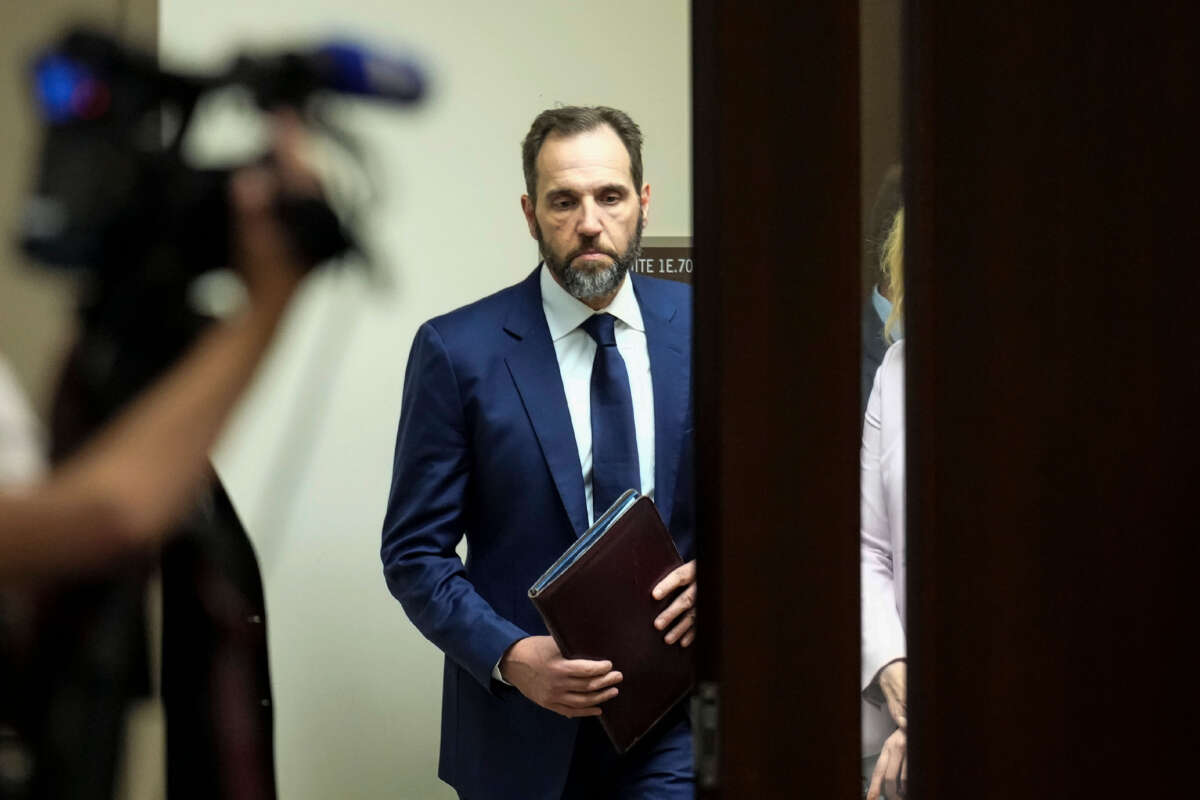Federal prosecutors filed a brief on Monday in the case involving former President Donald Trump’s attempt to usurp the 2020 election results, arguing against his demands that the eventual trial be televised live.
Trump faces four indictment charges in the trial relating to his attempts to overturn the legitimate results of the 2020 presidential election. Several news media companies have asked Judge Tanya Chutkan, the federal judge overseeing the trial, to allow cameras in the courtroom during the trial that is scheduled to begin in March 2024.
After initially expressing no opinion, Trump’s lawyers filed a forceful legal briefing earlier this month demanding that the trial be televised, arguing that preventing Americans from watching it in real-time would “[force] the nation and the world to rely on biased, secondhand accounts coming from the Biden Administration and its media allies.” Trump has repeatedly pushed the unfounded claim that the trial is political in nature, rather than based on evidence of his wrongdoings, legal experts have pointed out.
The likelihood of Trump’s trial being televised is extremely low — a federal criminal trial has never been aired on television and doing so would violate federal court rules on procedure. Chutkan has also indicated that Trump will not be treated differently from any other defendant in her courtroom, regardless of his status as a former president and a 2024 presidential candidate.
On Monday, special counsel Jack Smith’s office filed a briefing opposed to televising the trial, noting that it would be unusual to entertain Trump’s demands and that Trump is likely motivated by a desire to bolster his presidential campaign.
Trump’s request to have the trial aired on television is “a transparent effort to demand special treatment, try his case in the courtroom of public opinion, and turn his trial into a media event,” the prosecutors said, adding that a publicly televised trial increases the odds of attempts by Trump or his allies to intimidate witnesses who have agreed to testify against him or who may decide to do so in the future.
A trial aired live would create a “carnival atmosphere,” prosecutors alleged. They also said that Trump’s demands that his trial be televised are inconsistent with his actions and filings elsewhere during the trial, writing in their brief that:
If the defendant sought sunlight as he claims, he should welcome the opportunity to put the government to its proof at trial. Instead, his response to the applications shows that he will continue to attempt to avoid answering for his criminal conduct in the courtroom while at the same time publicly grandstanding.
“The Court should decline the defendant’s ‘demand’ that he be placed beyond the rules and above the law,” the special counsel’s office concluded in its briefing. “And it should avoid the spectacle — and attendant risks of witness intimidation — that the longstanding rules against courtroom broadcasting are designed to avoid.”
We have 2 days to raise $29,000 — we’re counting on your support!
For those who care about justice, liberation and even the very survival of our species, we must remember our power to take action.
We won’t pretend it’s the only thing you can or should do, but one small step is to pitch in to support Truthout — as one of the last remaining truly independent, nonprofit, reader-funded news platforms, your gift will help keep the facts flowing freely.
